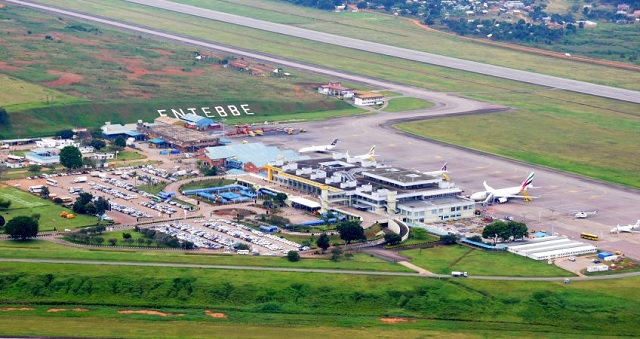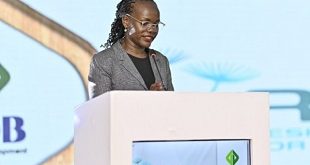
One of the key benefits of the SAATM is that it will increase the number of flights and airlines operating in Uganda, thereby increasing competition and lowering prices for consumers
SPECIAL FEATURE | DEREK NSEKO | The Single African Air Transport Market (SAATM) is a flagship project of the African Union, aimed at creating a single unified air transport market across Africa. The objective of SAATM is to liberalize the African aviation market, allowing airlines to operate freely across the continent, thereby boosting regional integration and economic growth. The idea behind SAATM is to increase the mobility of people, goods, and ideas, making it easier for African businesses to reach new markets and for African citizens to travel and explore the continent.
17 African states have signed up to a Pilot implementation project being championed by the African Civil Aviation Commission. The states have been identified as offering a favourable environment in which to proceed with SAATM implementation. However,Uganda has not joined the 35 African states that have already signed the solemn commitment to the SAATM, and this is a missed opportunity for the country to reap the benefits of a more integrated and connected Africa. By joining the SAATM, Uganda will be able to expand its trade, investment and tourism opportunities, while also benefiting from an increased flow of people and ideas.
One of the key benefits of the SAATM is that it will increase the number of flights and airlines operating in Uganda, thereby increasing competition and lowering prices for consumers. This will result in increased affordability and accessibility to air travel, thereby boosting the country’s tourism industry and creating new job opportunities. According to a report by the International Air Transport Association (IATA), the aviation industry supports over 7 million jobs and contributes $1.1 trillion to the global economy. By joining the SAATM, Uganda has the potential to tap into this significant economic opportunity and drive growth within its own borders.
Another key benefit of the SAATM is that it will help to reduce the cost of doing business in Uganda by making it easier for businesses to reach new markets across Africa. By joining the SAATM, businesses in Uganda will be able to connect more easily with potential customers, suppliers and investors in other African countries, thereby increasing the competitiveness of the country’s business sector. This will result in increased investment and job creation, which will help to drive economic growth and development in the country.
Moreover, the SAATM will help to increase the mobility of people, goods and ideas, thereby improving regional integration and encouraging greater cooperation between African countries. This will make it easier for Ugandans to travel and explore other parts of Africa, while also making it easier for people from other African countries to visit and invest in Uganda. This increased mobility will result in the exchange of ideas and cultural experiences, which will help to promote a better understanding and appreciation of different cultures, and encourage greater collaboration between African countries.
It is understandable that some people might have concerns about the playing field being competitively fair in an open skies market. However, it is important to note that the SAATM is based on a commitment to the principles of open skies, fair competition and non-discrimination, and is guided by the principle of mutual benefit. The SAATM agreement includes provisions to protect the interests of smaller airlines, and to ensure that all airlines are able to compete on an equal footing. Furthermore, the SAATM agreement includes provisions to ensure that airlines are able to access the markets they need in order to operate, and that they are able to compete on the basis of cost, quality and other relevant factors.
In order to join the SAATM, Uganda will need to demonstrate its commitment to liberalizing its aviation market and to improving the competitiveness of its airlines. This will involve removing barriers to entry and ensuring that all airlines have access to the markets they need in order to operate. Additionally, the government will need to ensure that it has the necessary infrastructure in place to support the growth of the aviation industry, including modern airports, air traffic control systems, and effective air navigation services.
Joining the SAATM will also require the government to invest in the development of the aviation industry, including providing financial support to small and medium-sized airlines, and encouraging the growth of new airlines. This will help to ensure that the aviation industry in Uganda is competitive and able to meet the demands of a growing market, while also encouraging the development of new routes and services.
In order to ensure that the benefits of the SAATM are fully realized, it is important that the Ugandan government works closely with the African Union and other African countries to support the growth and development of the aviation industry in the region. This will involve sharing best practices, building capacity, and providing technical assistance to ensure that the aviation sector is able to meet the demands of a growing market.
In conclusion, joining the SAATM is a critical step towards a more integrated and connected Africa, and offers numerous benefits to Ugandan and its people. It is therefore recommended that Uganda join the SAATM as soon as possible.
********
 The writer, Derek Nseko is an aviation consultant, a qualified commercial pilot, Founder and CEO at Airspace Africa and iFly Global. derek@airspace-africa.com twitter: @av8r_derek
The writer, Derek Nseko is an aviation consultant, a qualified commercial pilot, Founder and CEO at Airspace Africa and iFly Global. derek@airspace-africa.com twitter: @av8r_derek
 The Independent Uganda: You get the Truth we Pay the Price
The Independent Uganda: You get the Truth we Pay the Price



